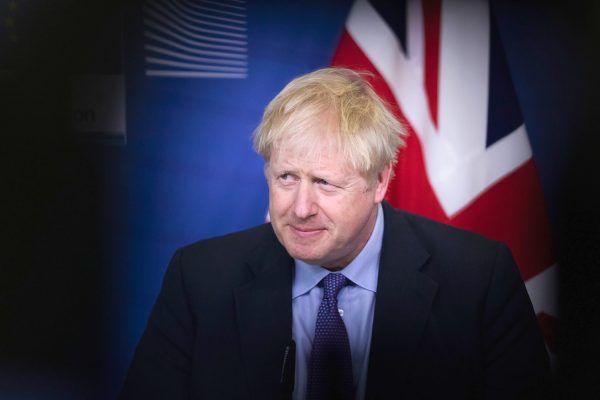
After two years of drama, British prime minister Boris Johnson has accepted the Brexit deal the EU offered all along.
Rather than keeping the whole of the United Kingdom in a customs union with the EU to avoid an economic border between the island of Great Britain and Northern Ireland, Johnson has agreed to keep only Northern Ireland in such a customs arrangement.
This is unacceptable to Johnson’s right-wing allies in Northern Ireland, meaning he will need support from opposition parties to get the deal through Parliament. (Johnson’s Conservatives do not have a majority.) Labour now officially argues for a second referendum. The Liberal Democrats and the Scottish National Party are opposed to Brexit altogether. No wonder European leaders, meeting in Brussels on Thursday, are skeptical Johnson can get this done.
Trade deals
The only new thing Johnson has negotiated is that Northern Ireland would formally remain part of Britain’s customs territory and benefit from future UK trade deals with other countries.
However, it is unclear how beneficial that could be. Presumably such trade deals would have to meet EU standards, at least for goods, to avoid divergence between Northern Ireland and the Republic of Ireland, and one of the reasons Brexit hardliners in Johnson’s Conservative Party voted against the last deal was that it wouldn’t allow the United Kingdom to escape EU regulations.
Pattern of populism
Bloomberg Opinion columnist Ferdinando Giugliano writes that the Brexit saga has followed the pattern of European populism:
- Attack mainstream opponents for not reaching a fantasy outcome.
- Come to power.
- Obtain the same (or worse) as your opponent at a higher economic cost.
It happened in Greece, where the far left attempted to renegotiate the country’s bailout with the EU, spooked investors, caused growth to fall only to eventually agree to the original terms.
Now it has happened in the UK.
Johnson to the rescue
Or, as Sara Gibbs puts it:
Theresa May right now is every woman who’s ever said an idea in a meeting and had everyone ignore her only for a man to say the same idea two minutes later and have everyone congratulate the fuck out of him.
I think that’s too generous to May, who tried to appease Brexiteers only to end up with a deal that was still unpalatable to them. Her mistake was not seeking cross-party buy-in for a permanent customs union with the EU, one of the least disruptive Brexit options.
But certainly the praise now heaped on Johnson from his supporters is absurd. He claimed he could get a better deal by threatening to leave the EU without one and has agreed to an exit agreement that, from the perspective of Brexit purists, is worse than May’s.
